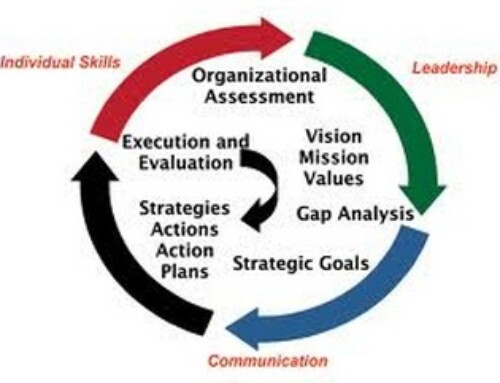- Sean Silverthorne, Editor of the Harbard Business School’s Working Knowledge shares some interesting perspectives about how to get the most out of your work day.
 I hear often from MLS execs that they just don’t have enough time in the day to get their key strategic priorities done. They get consumed with the day to day operation and the little details that can eat up hours of their day.
I hear often from MLS execs that they just don’t have enough time in the day to get their key strategic priorities done. They get consumed with the day to day operation and the little details that can eat up hours of their day.
Read Peter Bergman’s example here – it will probably sound all too famiiliar.
” “Hey, I see your door is closed, but can I interrupt you for just a second; its important.”
“No, sorry.”
“What? Just need a second of your time.”
“No. Come back when my door is open.”
You dont want to interrupt management consultant Peter Bregman when he has his Do Not Disturb sign out. Even if you are his children. “Out” he told his two young daughters as they invaded his home office recently.
“But, we just . . .”
“‘Out. I said once more, feeling like a jerk,” he writes. “I wanted to see them. I even worried for a second that they really needed me. What if one of them was hurt? What if there was a fire in the kitchen? But I didnt look up. My wife was home. If there was a fire, she would put it out.”
Jeez, he IS a jerk, you might be saying. But Bregman is making an important point when it comes to rules. If rules protecting your work time are to work, you have to stick to them. Even when its very uncomfortable to do so. Otherwise, people will keep breaking them. He writes in his post, The Cardinal Rule of Rules:
“Setting a rule and then letting people break it doesnt make them like you, it just makes them ignore you.”
Bregman points to studies weve chatted about here
that show when our work is interrupted, it can take hours to get back
on track. Thats right, hours. If at all. And the average worker is
interrupted numerous times during the day. ”
Maybe it’s time to figure out why you are getting interrupted so often. While many strong MLS leaders pride themselves on their transparency and availability and responsiveness to their members and staff, and that IS a good thing, maybe we need to look at the topic a bit differently.
Bergman goes on to say:
“If you are suffering Workus Interruptus, however, the first step if
NOT to close your door. Rather, its to figure out why you are being
interrupted in the first place. Are you not making yourself available
as much as necessary? Are your reports picking up the balls you are
constantly dropping? Once these issues are taken care of, dont be
bashful about carving out time to focus on your priority work. And
dont give in.”
In the case of the MLS – have each of the staff members really been empowered to make decisions and handle challenges on their own? If not, why not? Do they need more training? Are they not qualified for the position? Are they not performing? I wrote a post a few months ago about “Your team is only as storng as it weakest link”. If you have a weak link, then you may need to replace them – for their sake AND yours! The high maintenance employee will not onyl create sub-par work, they will cut into your time to focus on the key projects you need to get done as well.
Do you have members that will only talk to you? While it is human nature to want to “go to the top” for resolution, many issues that get escalated do not need to be. Again, is your staff equipped and empowered to make sound decisions based on unique circumstances? Do they have today’s tools at their fingertips to help them get answers? For example, does your help desk have a knowledge base they can draw from to find answers? Is there regular communication between the help desk, training and the MLS system developer? If you and the help desk are getting calls about a particiular field in the MLS system regularly, for example, does training know to reinforce that issue in their Introduction to the MLS class for example? Has the MLS system provider been made aware of the confusion a particular field may be creating? Have they made an attempt to simplify the filed or to embed vidoe help right next to the field in question? All of these pro-active steps can help save your member time and money AND free up your time from dealing with a small problem that is not a good use of your time.
Fixing the small problems that require your members to call you will actually free up your time to spend more time with your members on larger issues that can really make a difference in their satisfaction and ultimate loyalty to the organization.
In just about every member satisfaction survey we have completed around ther country we hear that members LOVE it when the MLS comes to their office. Are you spending enough time in the field listening to the key issues facing your brokers and agents? Are you out there telling people about all of the great services you provide to them?
Back in the office are you carving out time for you to think about how to make the MLS run more effectively? How to increase satisfaction levels of your membership? Are you carving out time regularly to attack the strategic goals that were outlined in your last strategic plan? If not, then you may need to think about how to deal with your own “workus interruptus” issues. Stephen Covey in his book the 7 Steps for HIghly Effectively Peoplle lays out a great construct for finding the time to focus on the reelevant and important issues that get really move the needle for your MLS and for your career. Happy Reading.




